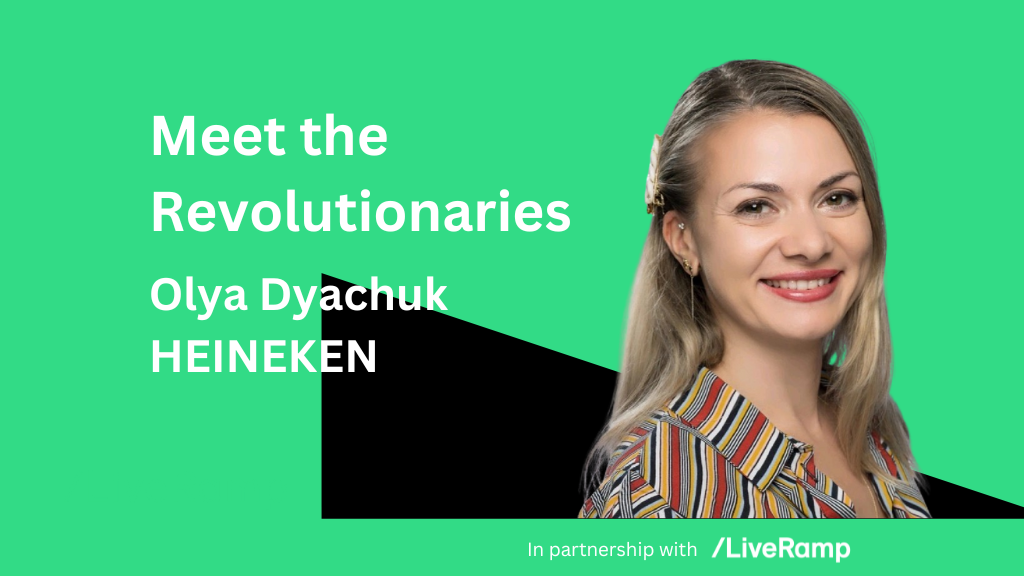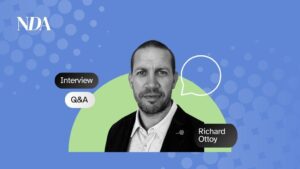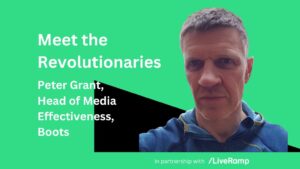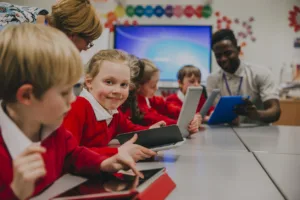New Digital Age, in association with LiveRamp, is spotlighting the men and women championing a data-led revolution in the marketing industry. The ‘Meet the Revolutionaries’ interviews focus on the efforts of the marketing professionals navigating a new era of data collaboration.
Here, Olya Dyachuk, Global Media and Data Director for HEINEKEN, shares her thoughts on the challenges to innovation and the future of marketing…
Tell me about your role at HEINEKEN and how your career led you there.
I started my career in my home country of Russia, where I worked in a number of jobs: TV production, PR for a political party, and finally working for a startup digital agency, where I ended up as the commercial director. I then moved to the UK to join global agency Omnicom, where I expanded my knowledge beyond digital to include things like channel strategy, the martech side of things, business operations, and so on.
I moved to HEINEKEN nearly three years ago, initially leading a data-driven media team in the UK. A few months ago, I moved into a Global Media and Data Director role out of our HQ in Amsterdam. The role is to drive growth for our business and our brands through building stronger consumer connections. I do it with the support of an incredible team here, but also with the help of lots of colleagues from across the wider business.
Can you give an example of a time when you personally have helped to drive innovation?
Innovation can come in different forms. To me, innovation is not necessarily about the latest shiny things; it’s often more about doing things that can make a big difference in the future.
For example, in terms of sustainability, in the UK we were the first client to test Dentsu’s carbon calculator tool, helping them to shape and improve the product. There we also integrated sustainability as well as diversity, equity and inclusivity into all our brand plans and our planning process as a clear checklist. Which became realistic due to the positive attitude and open mindset across the whole organisation and across our media and creative agencies.
At a media execution level, we recently created the first ever carbon neutral digital campaign for Inch’s, one of our cider brands.
I was also privileged to be a part of an ISBA and IAB working groups that worked on standardising the definitions and metrics of retail media.
What are the most common challenges to innovation?
The first blocker when it comes to innovation is probably we human beings. A big part of innovation is creativity and being able to think outside of the box. That comes easily when we are children but, somehow, as we become adults, we become more likely to suppress the creativity in us in an attempt to fit in. We also stop noticing the creativity of others around us. So, we all need to work to overcome those instincts.
There are also some organisational factors that need to be taken into account to drive and enable innovation. To encourage change, it’s important to have a very clear understanding of why that change will be important to the business. What is the vision or solution? How can the organisation help to make it happen?
Finally, it is important to balance performance and transformation agenda to deive immediate business results that can fund future-fit innovation.
What tips can you offer others hoping to drive innovation?
I would highly recommend signing up for Sir John Hegarty’s LinkedIn newsletter. It provides some good perspectives on the challenges facing marketers and reminds us that creativity is all around us.
When you move from an agency role (working with multiple clients in a variety of sectors) to a client-side role (focused on a single business) you can become very focused on your own business. I think marketers and insights teams are the people best placed to bring outside perspectives and new thinking to their own organisation, because we are the window into consumers’ lives.
Be agile. Don’t be afraid to fail as long as, when you do, you learn from your mistakes.
How do you think digital marketing might evolve over the next few years?
I think we’re already seeing a closer integration between Above The Line and Below The Line, a blurring of the lines. Consumers don’t think of our brands in terms of TV ads, social posts and videos on YouTube, they just see ‘Heineken’. We should be delivering one experience.
AI will enable greater automation and efficiency. It will become much easier to connect different touch points to create those unified experiences and, also, to measure the outcomes of those experiences.
Businesses have done some great work in the last few tackling the sustainability challenges in their supply chain, but we still have a huge task ahead of us. We, as an industry, need to come together to help define and standardise the way we measure sustainability in relation to digital media.
Will data collaboration become more important to marketers?
Yes, first-party data, zero-party data, in combination with the second-party data and third–party data of trusted partners will undoubtedly become more important to marketers. Retail media partnerships, for example, are becoming really important to brands like ours.
You need to be very mindful about how and why you collect customer data. Getting the fundamentals right in terms of data privacy is absolutely vital to consumer trust and the business as a whole.











